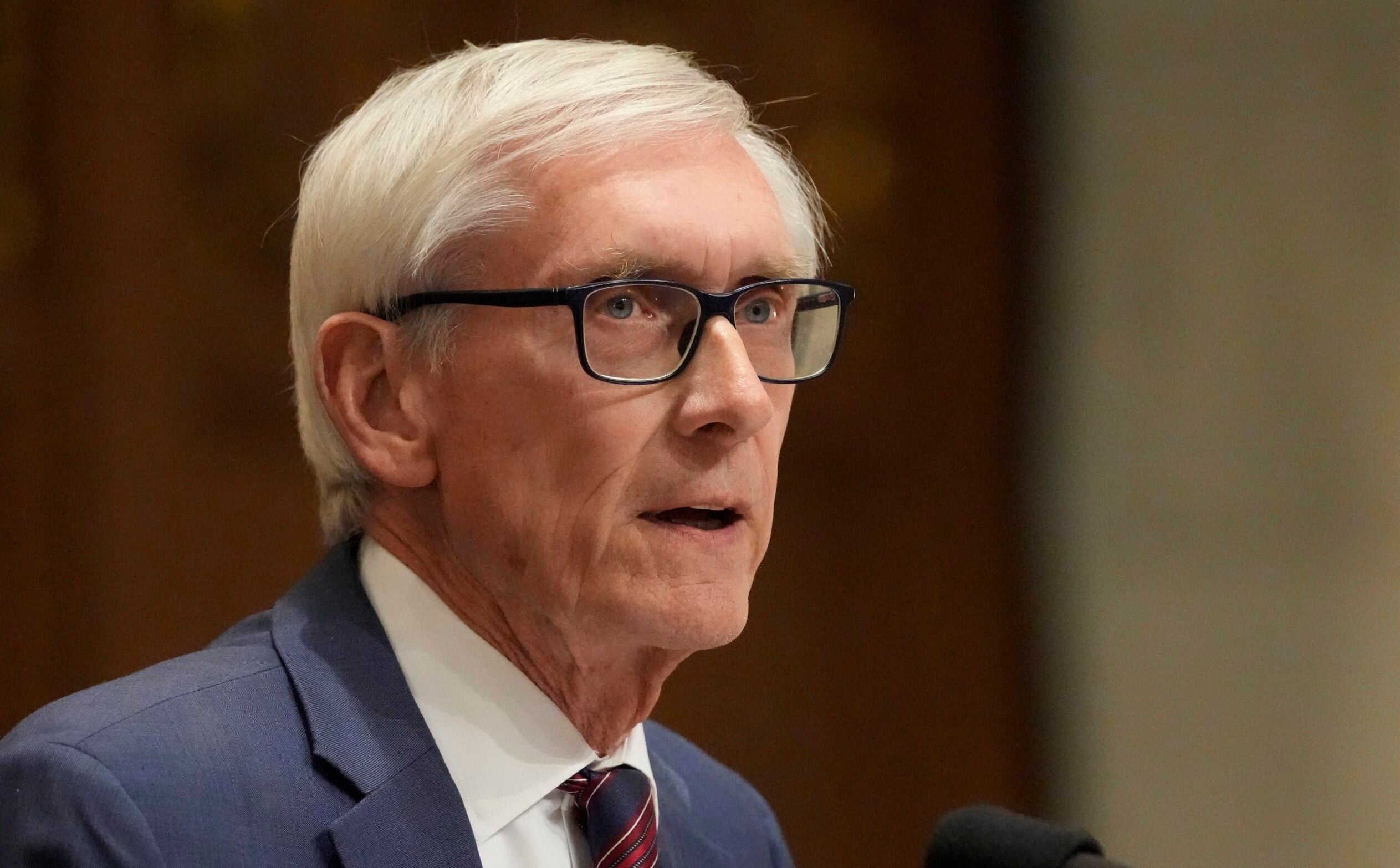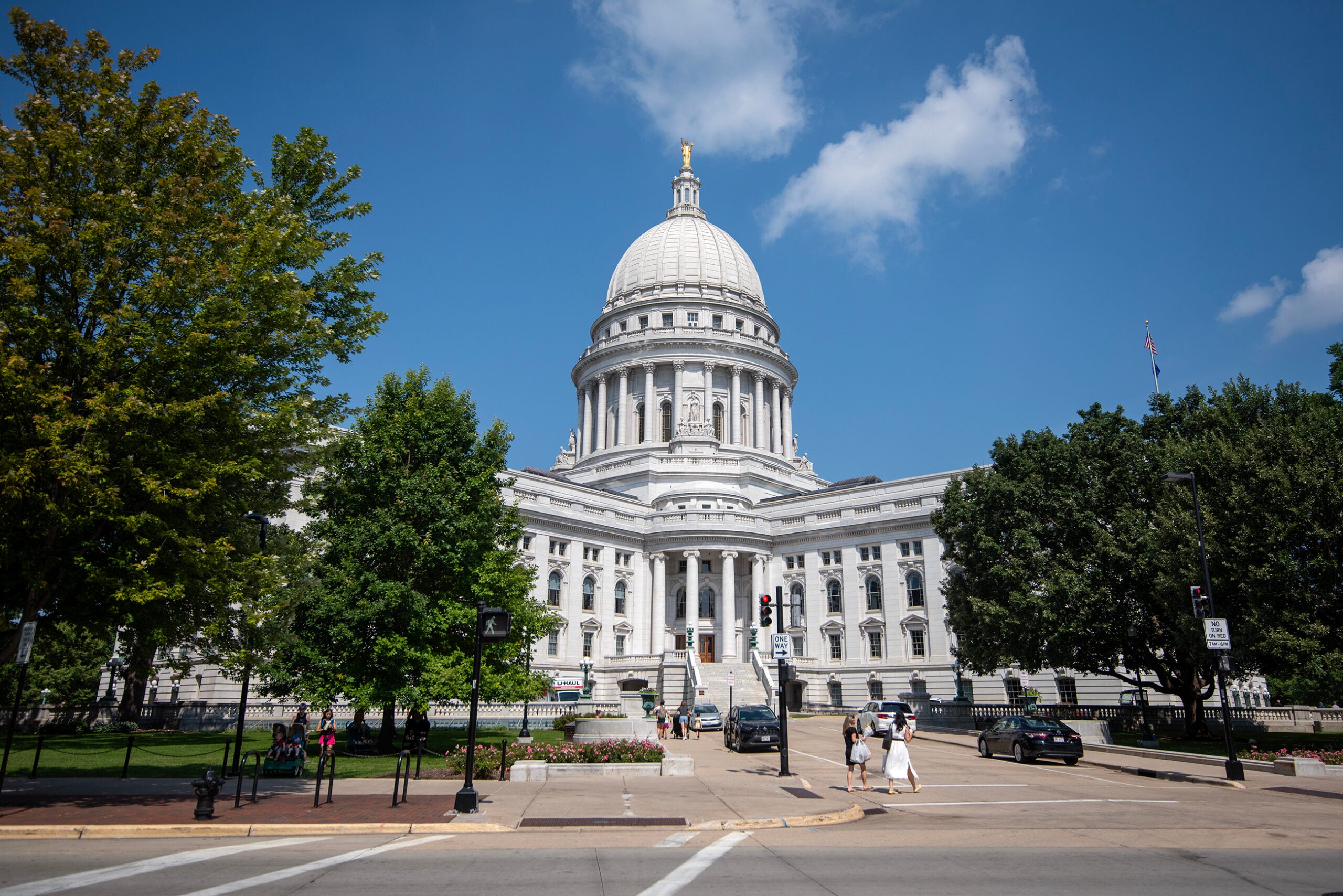Wisconsin’s statewide mask mandate remains in place after a St. Croix County judge rejected an effort by conservatives to block it.
In a brief ruling Monday, Judge Michael Waterman denied a request for a temporary injunction in a lawsuit filed by the Wisconsin Institute for Law and Liberty (WILL).
Waterman said he was reluctant to step in as a member of the judiciary when the Legislature had allowed the mask mandate to stand.
News with a little more humanity
WPR’s “Wisconsin Today” newsletter keeps you connected to the state you love without feeling overwhelmed. No paywall. No agenda. No corporate filter.
“If the legislature is unconvinced that a state of emergency does exist, the legislature has the ultimate power to terminate it,” Waterman wrote.
The legal fight over the mask mandate comes as Wisconsin has become one of the nation’s coronavirus hotspots, with the number and percentage of COVID-19 cases surging and COVID-19 hospitalizations near an all-time high.
Evers issued the mask mandate using a state law that gives governors the power to order 60-day public health emergencies in Wisconsin. It’s different than the law his administration used earlier this year to issue its “Safer at Home” order, which was struck down in May by the Wisconsin Supreme Court.
The mask mandate is also separate from the statewide restrictions on public gatherings issued by the Evers administration last week. Those restrictions have yet to be challenged in court.
Evers has used his powers to declare three public health emergencies this year. The first came March 12, at the beginning of the COVID-19 pandemic. The second, on July 30, led to the first mask mandate and came as COVID-19 cases were beginning to climb. And the third, on Sept. 22, extended the mask mandate as COVID-19 cases were surging on University of Wisconsin campuses.
WILL argued that because a governor’s public health emergency declaration “shall not exceed 60 days” unless it’s extended by the Legislature, Evers’ second and third public health declarations were invalid, and the court should strike them down.
But Waterman rejected that argument Monday.
“Nothing in the statute prohibits the governor from declaring successive states of emergency,” Waterman wrote.
Waterman noted that the law grants the governor emergency powers also grants the Legislature the power to revoke those powers with simple majority votes.
“The legislature can end the state of emergency at anytime, but so far, it has declined to do so,” Waterman said. “As the statewide representative body of the citizens of Wisconsin, the legislature’s inaction is relevant and it weighs against judicial intervention.”
While some Republicans have said they’d like to vote to override Evers’ orders, Assembly Speaker Robin Vos, R-Rochester, and Senate Majority Leader Scott Fitzgerald, R-Juneau have resisted calls to bring lawmakers back to Madison for a vote. Spokespeople for Vos and Fitzgerald did not immediately return emails seeking comment.
Evers issued a statement celebrating the decision.
“Today’s ruling is a victory in our fight against COVID-19 and our efforts to keep the people of Wisconsin safe and healthy during this unprecedented crisis,” Evers said.
WILL president and general counsel Rick Esenberg issued a statement promising to appeal the ruling.
“It is with regret that the Judge held that the Governor of the State of Wisconsin can rule the state by decree for an unlimited amount of time with the acquiescence of the legislature,” Esenberg said. “We look forward to making an appeal on this critical constitutional matter.”
WILL did not say how that appeal would play out procedurally or whether it would be filed directly with the Wisconsin Supreme Court. What might happen there is not entirely clear.
While the court struck down “Safer at Home” in May, it had a 5-2 conservative majority at the time, a margin that has since been trimmed to 4-3.
That would put the focus squarely on conservative Justice Brian Hagedorn, who joined the court’s liberals in siding with the Evers administration earlier this year.
Wisconsin Public Radio, © Copyright 2026, Board of Regents of the University of Wisconsin System and Wisconsin Educational Communications Board.






